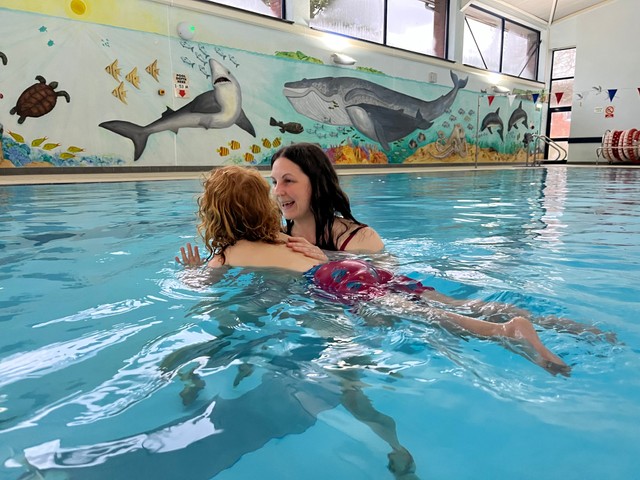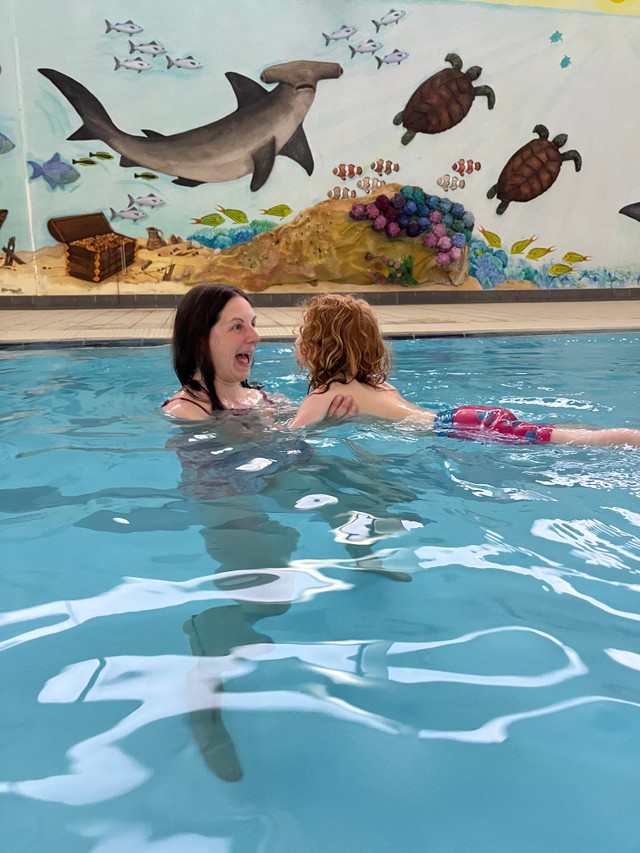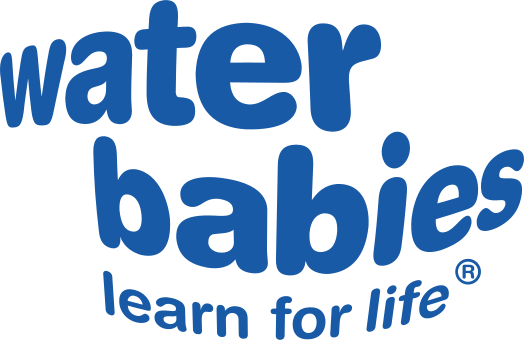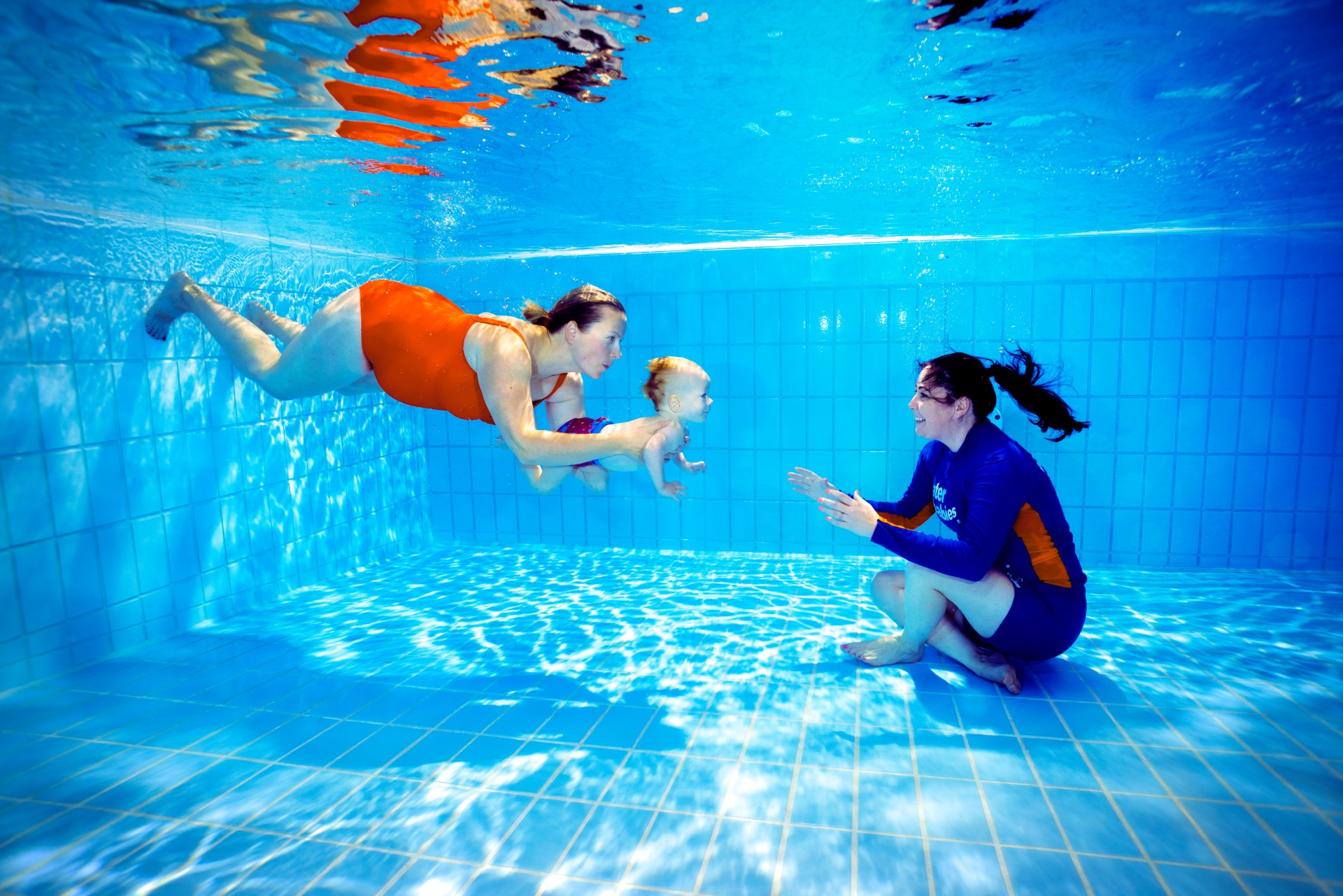Here’s Rowan’s story, written by Mum, Helen
Our 3 year old daughter Rowan is a smiley little people-person, with a great sense of cheekiness. Rowan has a very serious form of epilepsy, which caused her to have severe seizures as a new-born baby. As a result, this has damaged her development. She has good sitting balance, can stand, and even step with support, but is not yet mobile or able to speak.

Starting Rowan’s baby swimming journey
Rowan has quite a lot of therapies to help her learn. Last year, since her seizures had become infrequent and affected her only at night, we finally got the OK from her doctor to allow her to swim, so long as she didn’t go underwater.
She had a few hydrotherapy sessions and absolutely loved being in the water. It was the highlight of our week and she started to make some real progress with her physical skills. We really wanted to continue but demand was high. So unfortunately we only had sessions for a couple of months.
This led us to look into getting Rowan some regular swimming classes instead, so she could continue some of that learning and maybe make some friends too.
We found Water Babies ran classes at a hydrotherapy pool near us. So I gave them a call to see if they could accommodate Rowan’s needs. They were really positive and encouraging about Rowan starting lessons, and fell over themselves to find her a suitable class and to understand her ability level.
They told me their priority was to include children of all abilities fully in sessions with their peers as far as possible. Together, we identified a small class of children only slightly younger than her at our local pool, and we signed up.

Becoming a water baby
Rowan loves it! She loves being in the water, loves the singing and splashing, and loves the other kiddies and her teacher Kat! She swims like a little mermaid, wriggling her whole body, and has the best time, smiling constantly.
Her favourite activities are using the mat for skills such as ‘Jelly On A Plate’ and ‘Row Your Boat’, splashing in from the side (always with a cheeky smile on her face!) and anything else involving splashing into the water. She has even applied what she has learnt from splashing into the pool to learning to go down a slide all by herself – we just sit her at the top, she leans forwards (as if jumping into the pool) and down she goes! She is so happy to be able to do it herself.
We find Rowan can do most activities without a lot of extra support, maybe a bit of hand-over-hand to help with her ‘Tiger Arms’ or ‘Hold On’ skills. She can be a bit of a handful when getting her positioned on woggles and floats (swimming aids), but other than that, she is able to take part just like the others.
Though we have found the pace can be a bit fast for a child who takes a long time to process information, the repetition week by week helps her to get to grips with activities, and Kat is always happy for us to take a bit of extra time.
Adapting skills to Rowan’s needs
Going underwater is always optional. Anything involving standing we can either do sitting, or have a poolside helper to support her to stand. Any activities such as walking across the mat and jumping in, we adapt so she can splash in from a sitting position instead. There is a mat on the side of the pool for Rowan to sit safely on whilst we get in and out of the pool, just in case she topples over (or tries to get herself into the water!) We’ve also managed to keep up practising some of her hydrotherapy exercises between activities.
Although Rowan gets a bit of extra support, she is otherwise very much treated as any other child rather than being ‘the disabled one’. It feels fun, inclusive and supportive.
I would advise other parents of children with disabilities and other additional needs who are thinking about starting swimming with your little ones, speak to any professionals who work with them to find out how it could help them, and identify anything you might need to think about. Then, have a chat with Water Babies to find a suitable class and discuss how your child can be fully included.
I hope you will find yourself encouraged by just how much your child can be part of the fun too!

